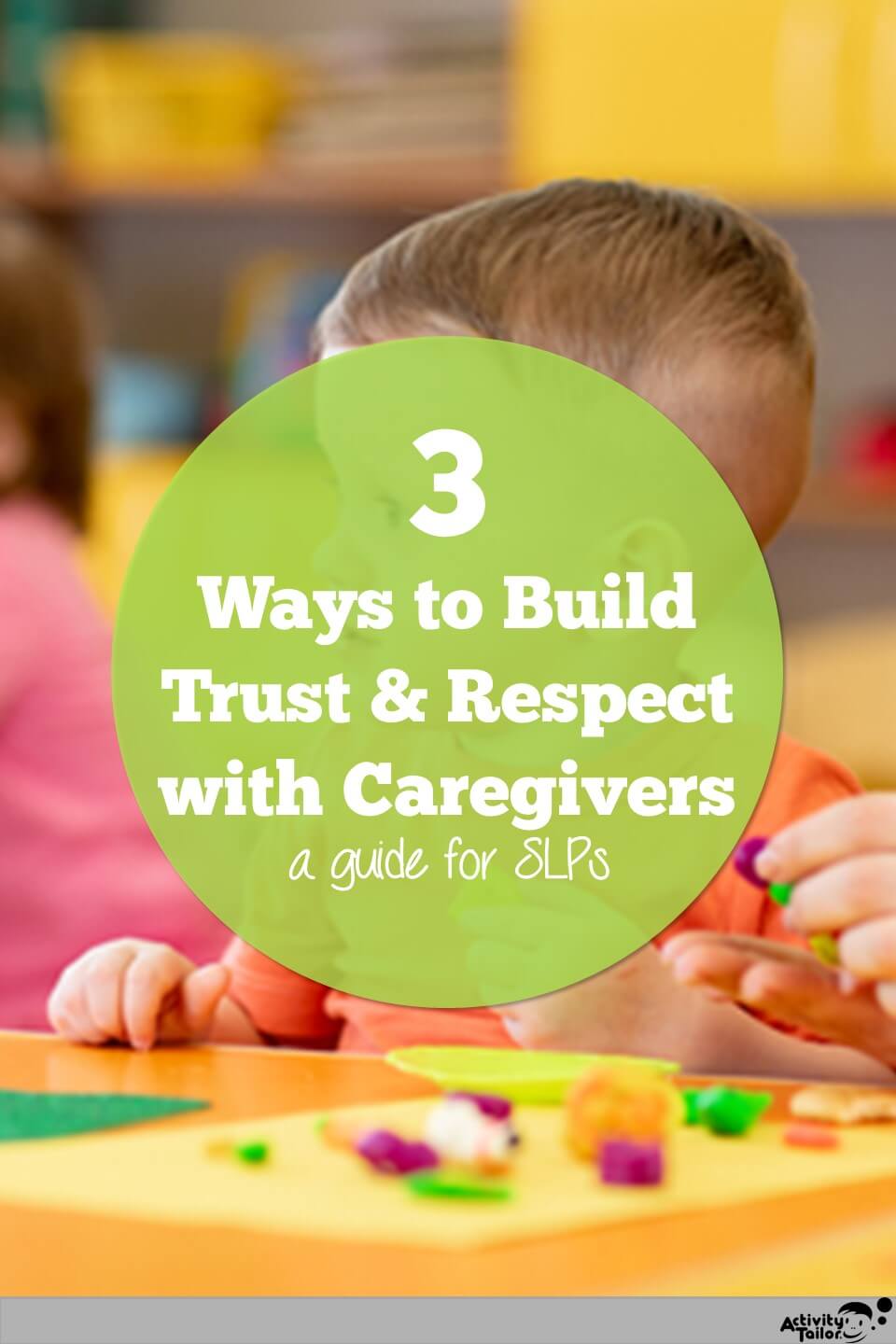
3 Ways to Build Trust and Respect with Caregivers: A Guide for Pediatric SLPs
As a pediatric SLP, you understand the importance of gaining the trust and respect of your clients’ caregivers. Developing a strong rapport with parents is crucial for successful collaboration and implementation of treatment plans. While your (fabulous!) credentials may highlight your expertise, it’s your interpersonal skills and approach that will truly solidify your role as a trusted partner in a child’s communication journey. Read these 3 strategies you can begin to easily incorporate to build trust and respect with caregivers that lasts! 3 Ways to Build Trust and Respect with Caregivers 1. Active Listening One of the first steps in
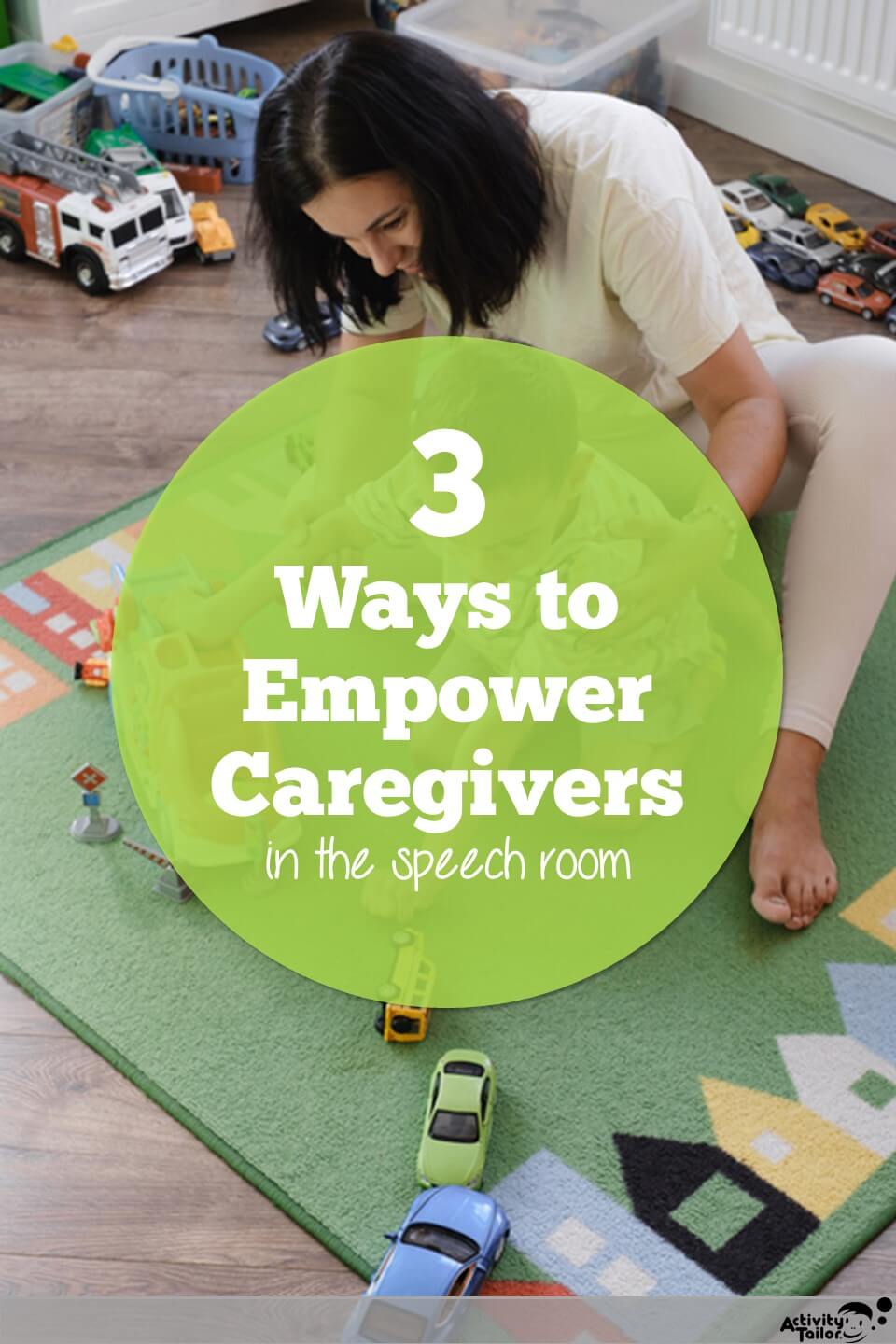
3 Ways to Empower Caregivers in Speech Therapy
The journey of speech-language therapy can be overwhelming for families. As an SLP, it’s crucial to recognize the emotional challenges caregivers often face when their child is diagnosed with a communication delay or receives an unexpected medical diagnosis. Rather than assuming disinterest, it’s important to acknowledge their vulnerability and seek to empower them as integral members of the therapy process. Let’s go over 3 easy ways to empower caregivers in speech therapy– because they really do want to help! 3 Easy Ways to Empower Caregivers in Speech Therapy 1. Speak Simply Communicate simply with families by using easy-to-understand terms and
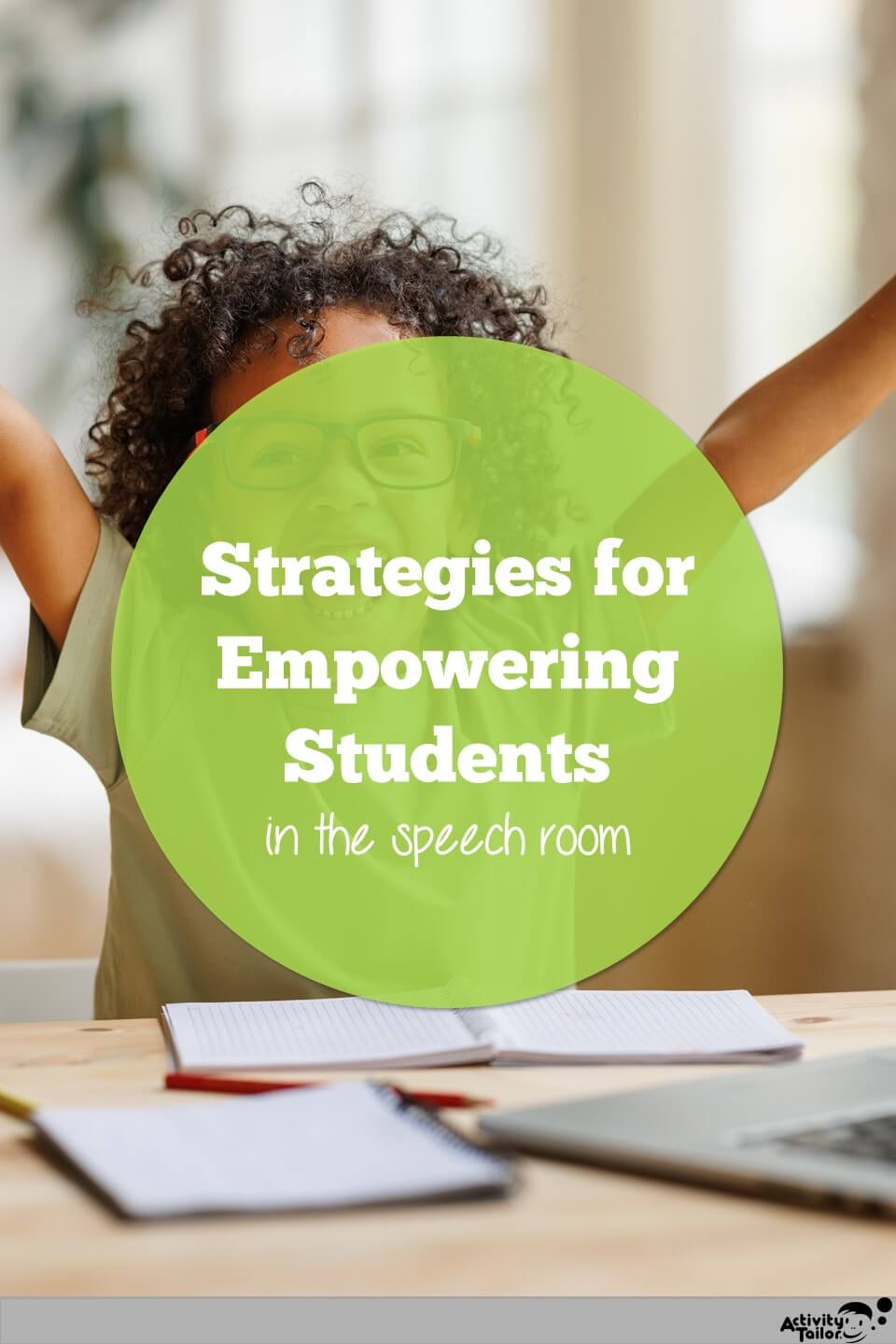
5 INGENIOUS Strategies to Empower Students in Speech Therapy
As you know, even the most intricately planned speech sessions and thought-out goals cannot overcome a student who is unmotivated in speech sessions. Figuring out how to empower students in speech therapy is a delicate balance of providing support while also promoting independence. As you address passivity, avoid being the sole motivator for success, reduce caregiver stress, establish quality home programs, and implement speech stations, you will set your speech students up for life-long success as they take control of their goals and learn to communicate effectively. Address Passivity to Empower Students in Speech Therapy Passive learners often struggle to
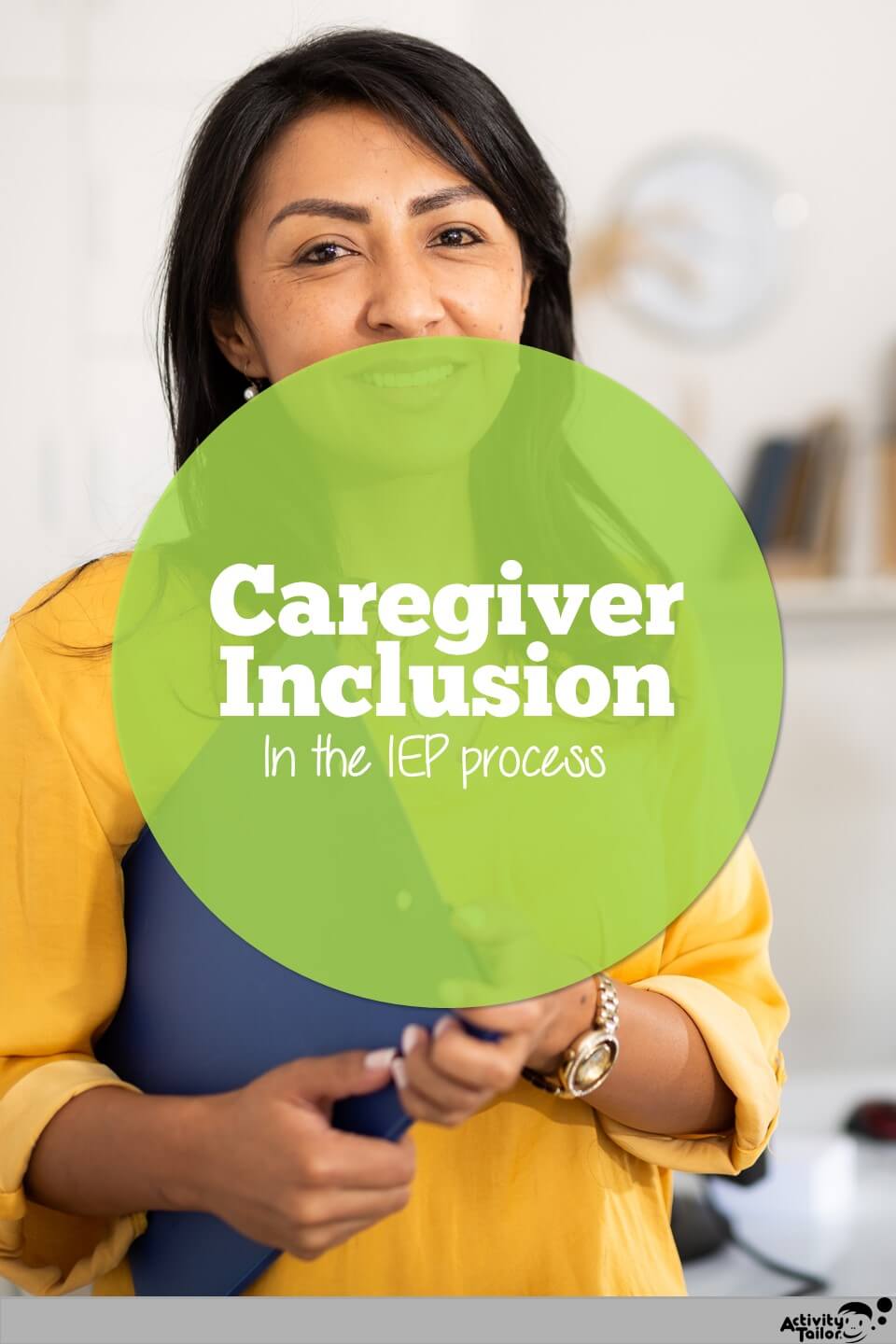
EASY Steps to Ensure Caregivers Feel Like an Integral Part of the IEP Process
Navigating the world of Individualized Education Programs (IEPs) can feel overwhelming for caregivers, but the process can be more manageable with your help as an SLP! Let’s delve into how and why you should ensure caregivers feel like integral parts of the IEP process. I promise– everyone will be better for it! How & Why to Ensure Caregivers Feel Like an Integral Part of the IEP Process IEP Reminders Maybe you’re new to the school setting or are working with a different age than you previously have. Either way, it’s always good to review the basics before you begin to
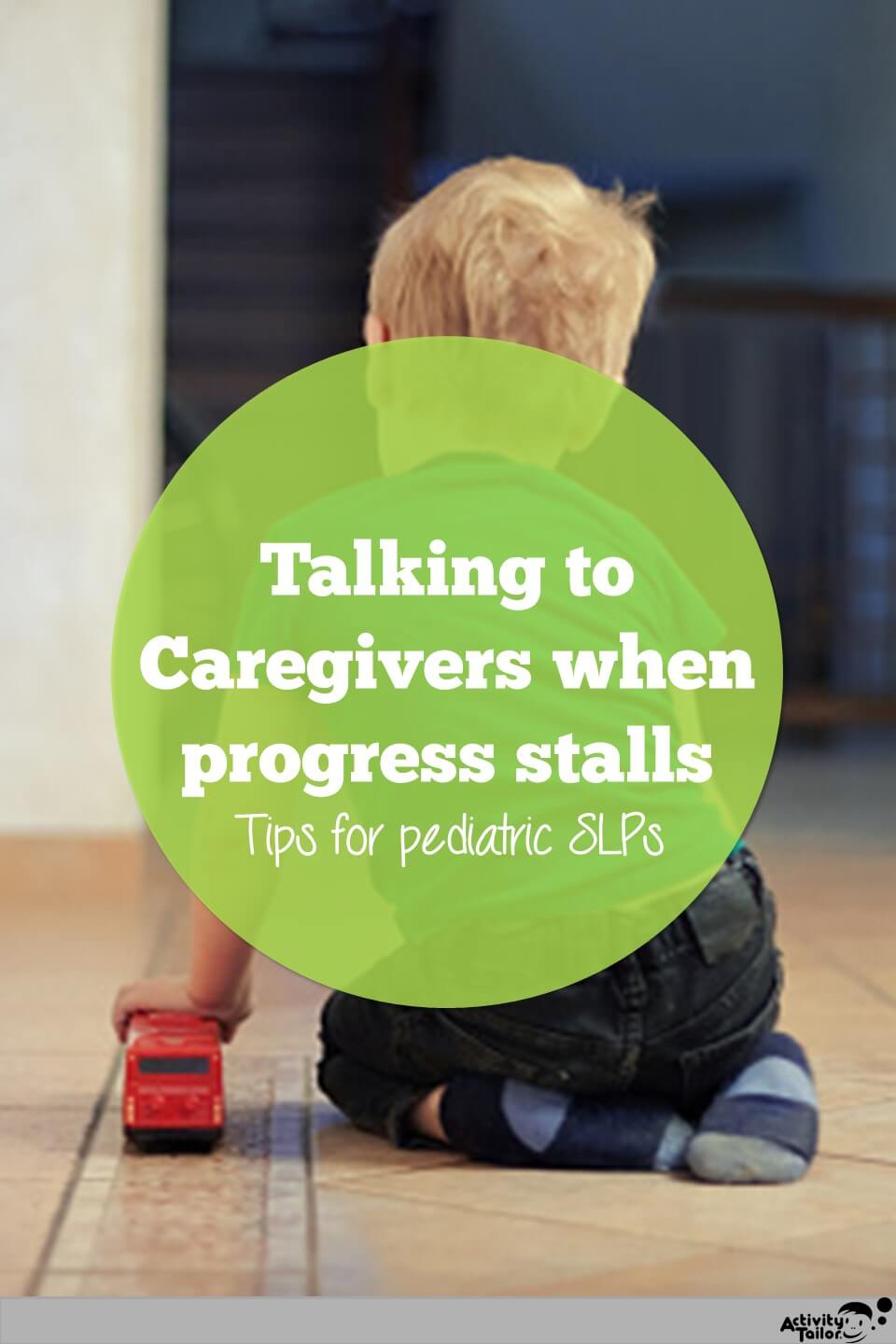
3 Quality Tips about Stalled Speech Progress: Difficult Conversations with Caregivers
As a pediatric SLP, your dedication to helping children make progress with their speech and language goals is unwavering. However, there are times when that progress stalls. As you approach the end of the year with spring on the horizon, it’s necessary to have difficult conversations with caregivers when their child isn’t making the expected progress with speech and language goals. Read on for 3 high-quality tips to make the most of these conversations about stalled speech progress. 3 Important Tips for Conversations about Stalled Speech Progress Make Necessary Referrals Accept Limitations Discuss the Importance of Home Practice Make Necessary
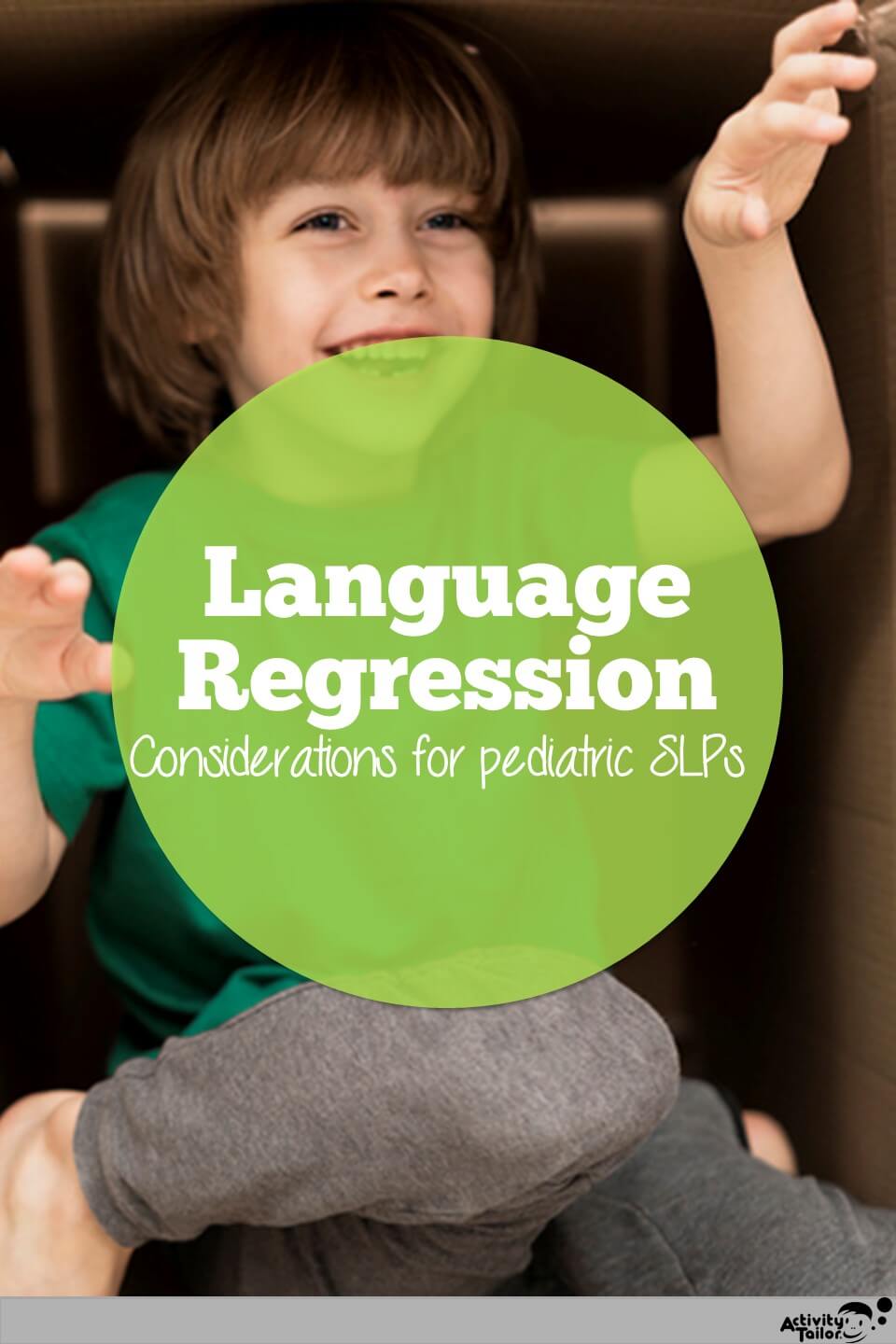
Exploring 6 Alternative Causes for Language Regressions Beyond Autism for Pediatric SLPs
While Autism Spectrum Disorder (or ASD) is commonly associated with language regressions in young clients, it’s critical for you as an SLP to consider other causes for these setbacks. To provide the best, most effective services to your clients and their caregivers, you’ll likely have to broaden your perspectives! Think about these 6 alternative causes for language regressions when ASD isn’t a piece of the puzzle for your client. Language Regressions Before we dive into other considerations, let’s think solely about language regressions. A language regression is defined as any decline in a child’s communication abilities. Commonly reported language regressions

6 EASY Ways to Make Speech Homework a Habit in the New Year
As a pediatric SLP, you understand the importance of caregivers following through with speech therapy homework with their children. The new year is a great chance to encourage the families you serve to recommit to this crucial practice! Ensure that your clients continue to make progress and reach their goals by using these 6 easy strategies to help caregivers make speech homework a habit this year! Support Caregivers as They Make Speech Homework a Habit 1. Reinforce the Importance of Consistency The beginning of the year is the perfect time to remind parents that progress in speech therapy goes far
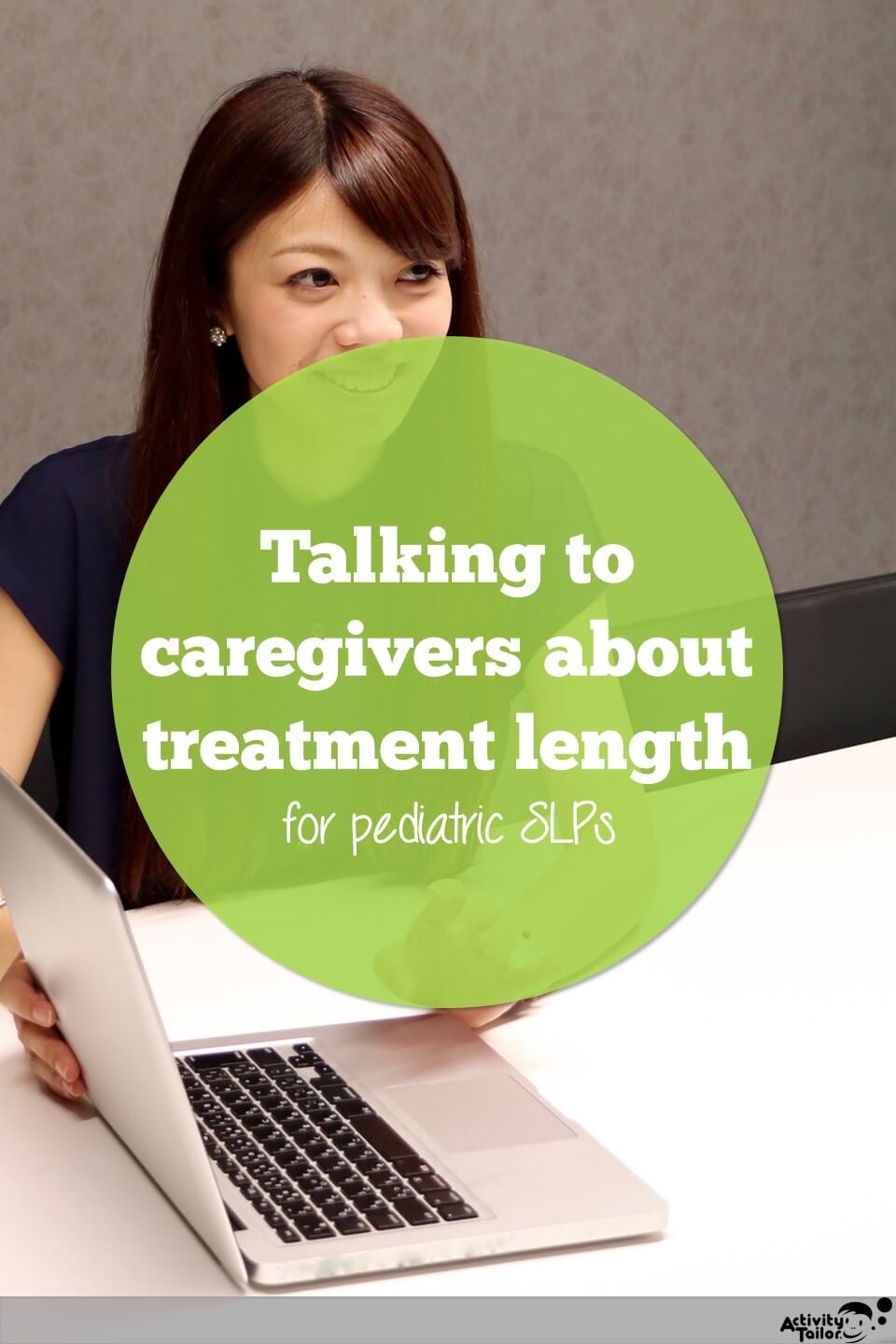
Addressing the Parent Question: How Long Will Speech Therapy Take?
As a pediatric SLP, you know one of the most frequently asked questions you receive from families is “How long will speech therapy take?”. This is a normal concern, especially for caregivers who are paying out of pocket for their child’s speech services. Keep reading to learn what exactly you can say to caregivers when they ask this question! Talking to Caregivers about Treatment Length Discussing treatment length is as simple as 1-2-3-4! 1. Educate and Set Appropriate Expectations First, it’s important to educate families. Be sure that caregivers understand their child’s unique speech and language needs. Discuss their child’s
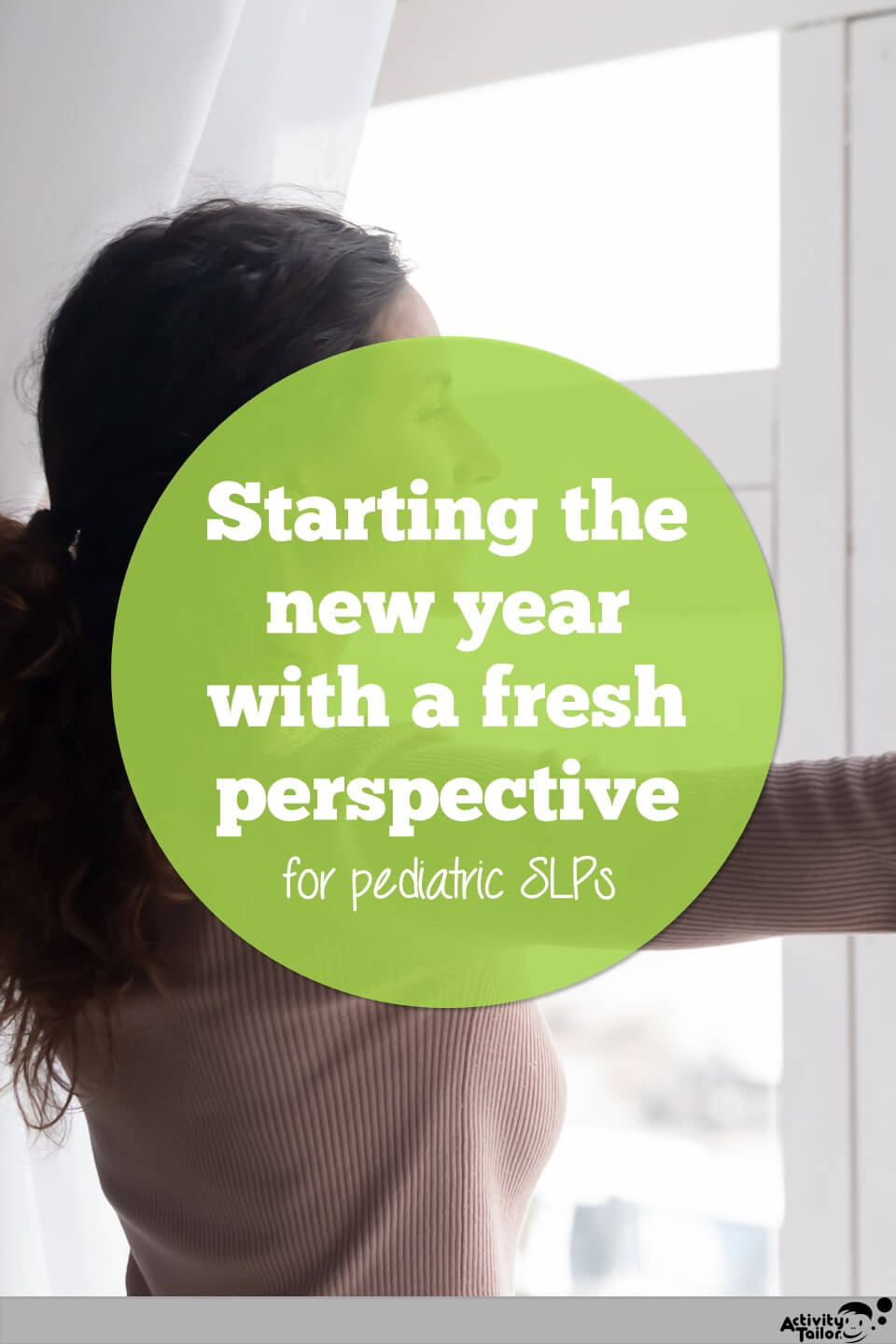
4 Ways to Start Fresh in the New Year for Success as an SLP
As the New Year begins, you’ll likely find yourself reflecting on your past year as an SLP. This is the perfect time to take inventory of what’s working and what isn’t, make changes, and plan ahead for a great summer break. Choosing a fresh start in the new year will help you establish a healthier work-life balance and find success as an SLP to carry you through the entire year! 4 Ways to Find Success as an SLP in the New Year 1. Take Inventory: What’s Working and What Isn’t The New Year is a fantastic time to evaluate what
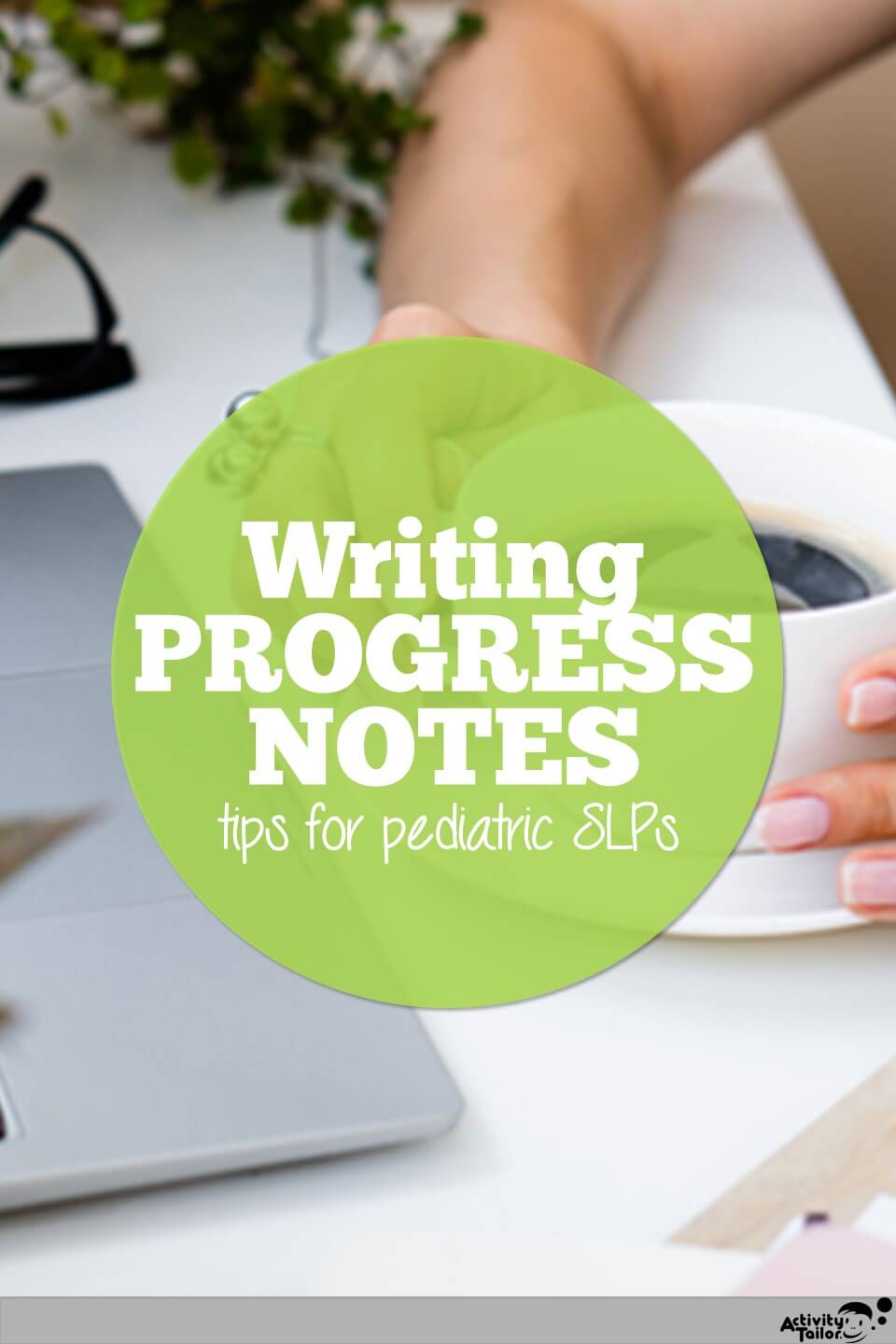
TOP 3 Tips SLPs Need to Know for Writing Progress Notes
As you know, progress notes play a huge role in your work as an SLP. They are important for documenting a client’s progression with speech goals but also powerful tools for fostering positive communication with caregivers and generating more client referrals. You’re just 3 tips away from writing progress notes that provide this fabulous double duty! 3 Tips You Need for Writing Great Progress Notes Writing great progress notes is really easier than you think! 1. Embrace a Strength-Based Approach The first thing you need to do when writing progress notes is to adopt a strength-based perspective. During the evaluation

3 Ways to Build Trust and Respect with Caregivers: A Guide for Pediatric SLPs
As a pediatric SLP, you understand the importance of gaining the trust and respect of your clients’ caregivers. Developing a strong rapport with parents is crucial for successful collaboration and implementation of treatment plans. While your (fabulous!) credentials may highlight your expertise, it’s your interpersonal skills and approach that will truly solidify your role as a trusted partner in a child’s communication journey. Read these 3 strategies you can begin to easily incorporate to build trust and respect with caregivers that lasts! 3 Ways to Build Trust and Respect with Caregivers 1. Active Listening One of the first steps in

3 Ways to Empower Caregivers in Speech Therapy
The journey of speech-language therapy can be overwhelming for families. As an SLP, it’s crucial to recognize the emotional challenges caregivers often face when their child is diagnosed with a communication delay or receives an unexpected medical diagnosis. Rather than assuming disinterest, it’s important to acknowledge their vulnerability and seek to empower them as integral members of the therapy process. Let’s go over 3 easy ways to empower caregivers in speech therapy– because they really do want to help! 3 Easy Ways to Empower Caregivers in Speech Therapy 1. Speak Simply Communicate simply with families by using easy-to-understand terms and

5 INGENIOUS Strategies to Empower Students in Speech Therapy
As you know, even the most intricately planned speech sessions and thought-out goals cannot overcome a student who is unmotivated in speech sessions. Figuring out how to empower students in speech therapy is a delicate balance of providing support while also promoting independence. As you address passivity, avoid being the sole motivator for success, reduce caregiver stress, establish quality home programs, and implement speech stations, you will set your speech students up for life-long success as they take control of their goals and learn to communicate effectively. Address Passivity to Empower Students in Speech Therapy Passive learners often struggle to

EASY Steps to Ensure Caregivers Feel Like an Integral Part of the IEP Process
Navigating the world of Individualized Education Programs (IEPs) can feel overwhelming for caregivers, but the process can be more manageable with your help as an SLP! Let’s delve into how and why you should ensure caregivers feel like integral parts of the IEP process. I promise– everyone will be better for it! How & Why to Ensure Caregivers Feel Like an Integral Part of the IEP Process IEP Reminders Maybe you’re new to the school setting or are working with a different age than you previously have. Either way, it’s always good to review the basics before you begin to

3 Quality Tips about Stalled Speech Progress: Difficult Conversations with Caregivers
As a pediatric SLP, your dedication to helping children make progress with their speech and language goals is unwavering. However, there are times when that progress stalls. As you approach the end of the year with spring on the horizon, it’s necessary to have difficult conversations with caregivers when their child isn’t making the expected progress with speech and language goals. Read on for 3 high-quality tips to make the most of these conversations about stalled speech progress. 3 Important Tips for Conversations about Stalled Speech Progress Make Necessary Referrals Accept Limitations Discuss the Importance of Home Practice Make Necessary

Exploring 6 Alternative Causes for Language Regressions Beyond Autism for Pediatric SLPs
While Autism Spectrum Disorder (or ASD) is commonly associated with language regressions in young clients, it’s critical for you as an SLP to consider other causes for these setbacks. To provide the best, most effective services to your clients and their caregivers, you’ll likely have to broaden your perspectives! Think about these 6 alternative causes for language regressions when ASD isn’t a piece of the puzzle for your client. Language Regressions Before we dive into other considerations, let’s think solely about language regressions. A language regression is defined as any decline in a child’s communication abilities. Commonly reported language regressions

6 EASY Ways to Make Speech Homework a Habit in the New Year
As a pediatric SLP, you understand the importance of caregivers following through with speech therapy homework with their children. The new year is a great chance to encourage the families you serve to recommit to this crucial practice! Ensure that your clients continue to make progress and reach their goals by using these 6 easy strategies to help caregivers make speech homework a habit this year! Support Caregivers as They Make Speech Homework a Habit 1. Reinforce the Importance of Consistency The beginning of the year is the perfect time to remind parents that progress in speech therapy goes far

Addressing the Parent Question: How Long Will Speech Therapy Take?
As a pediatric SLP, you know one of the most frequently asked questions you receive from families is “How long will speech therapy take?”. This is a normal concern, especially for caregivers who are paying out of pocket for their child’s speech services. Keep reading to learn what exactly you can say to caregivers when they ask this question! Talking to Caregivers about Treatment Length Discussing treatment length is as simple as 1-2-3-4! 1. Educate and Set Appropriate Expectations First, it’s important to educate families. Be sure that caregivers understand their child’s unique speech and language needs. Discuss their child’s

4 Ways to Start Fresh in the New Year for Success as an SLP
As the New Year begins, you’ll likely find yourself reflecting on your past year as an SLP. This is the perfect time to take inventory of what’s working and what isn’t, make changes, and plan ahead for a great summer break. Choosing a fresh start in the new year will help you establish a healthier work-life balance and find success as an SLP to carry you through the entire year! 4 Ways to Find Success as an SLP in the New Year 1. Take Inventory: What’s Working and What Isn’t The New Year is a fantastic time to evaluate what

TOP 3 Tips SLPs Need to Know for Writing Progress Notes
As you know, progress notes play a huge role in your work as an SLP. They are important for documenting a client’s progression with speech goals but also powerful tools for fostering positive communication with caregivers and generating more client referrals. You’re just 3 tips away from writing progress notes that provide this fabulous double duty! 3 Tips You Need for Writing Great Progress Notes Writing great progress notes is really easier than you think! 1. Embrace a Strength-Based Approach The first thing you need to do when writing progress notes is to adopt a strength-based perspective. During the evaluation

